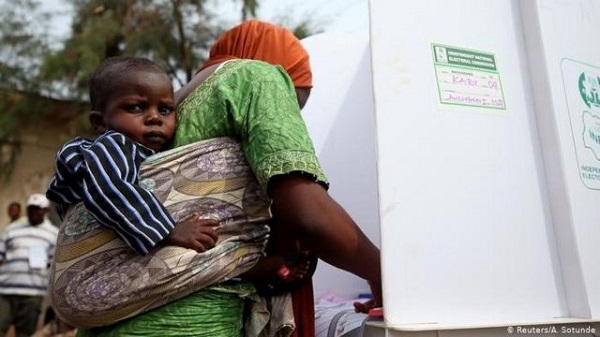
The Lancet Global Health Commission on High Quality Health Systems in the SDG Era (HQSS Commission), a group of 30 academics, policymakers and health system stakeholders from 18 countries has said that Nigeria’s 2023 general elections are a chance for Nigerians to shape a healthier future.
The HQSS Commission said this in a statement made available to journalists in Abuja.
The commission said in early 2022, it finalised a systematic review of patient satisfaction with the Nigerian National Health Insurance Scheme (NHIS).
“Reviewing roughly 20 years of evidence, we identified moderate 64 per cent satisfaction with the NHIS, with waiting times and referrals being leading concerns identified by those insured.
“An additional critique was the NHIS’ poor uptake and lack of mechanisms to facilitate uptake by individuals working in the informal sector, which makes up 47–67 per cent of Nigeria’s gross domestic product,” it said.
It said it also called for more research across all 36 Nigerian states to comprehensively understand patient satisfaction with the NHIS in anticipation of potential scheme expansion, given that only three per cent of Nigerians were estimated to have coverage.
“With the signing of the National Health Insurance Authority Bill (NHIAB) on May 19, 2022, and subsequent repeal of the NHIS, Nigeria again has a unique opportunity to improve its national health system.
“Under the NHIAB, all Nigerians are mandated to have health insurance, and the newly established Vulnerable Group Fund aims to make insurance accessible to people in poverty and people who are unable to pay insurance premiums,” it explained.
According to it, some individuals view the forth coming 2023 general elections and the installation of a new president as a potential obstacle to the implementation of the NHIAB.
The Lancet Commission said from its perspective, that the elections could also spur greater health-focused civic engagement from Nigerians.
“Presently, many national conversations are rightfully focused on economic development and insecurity. Yet, population health is an important contributor to out-of-pocket expenditures, national economic productivity, and national security.
“So, in addition to mainstream conversations about the health of individual candidates and their vigour for holding office, there should also be more dialogue on whether implementing the NHIAB is a priority for presidential candidates.
“Given that the National Health Insurance Authority will be tasked with collaborating with state government health insurance schemes, these citizen-led conversations about prioritising NHIAB implementation should also be taking place with candidates at the gubernatorial and other local levels.
“The former Nigerian President Nnamdi Azikiwe once said ‘The challenge of Nigeria as a free state…is the need to revive the stature of man in Africa and restore the dignity of man in the world’.” The commission, however, classified health as an important cornerstone of achieving these goals and, thus, all Nigerian citizens must feel empowered to play their part in achieving a healthier future.

